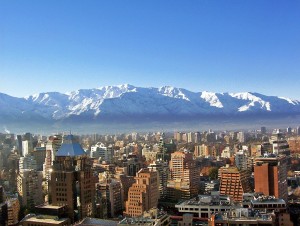4 Things You Should Consider Before Accepting a Job in Chile
Posted on April 11th, 2014 by Dusty Fox in Uncategorized | No Comments »
If you’ve received an offer to work in Chile, you’re probably already dreaming of an entirely different lifestyle than the one you currently have. Afternoon siestas, late nights out on the town, weekends exploring the Patagonian mountains–there’s plenty to dream about when it comes to this South American country. But before you accept that job offer or transfer to Chile, you have lots to learn about the people, the climate, the cost of living, and other important details. Not sure where to start? Check out this list of 4 things you should consider before accepting a job in Chile and leaving your U.S. life behind.
1) You won’t work less hours.
Many expats expect that their work week will shorten once they move abroad. We all hear those stories about countries where workers get 8 weeks of vacation a year, take 3 hours off every day for a siesta, or consider a 6-hour workday to be long enough. Chile is not one of those countries. Yes, you may sneak away for a nap if you happen to live in a more rural area, but chances are that if you’re relocating for a new job, you’ll be positioned in or near the capital. Santiago is a modern, fast-paced city, and businesses that encourage employees to take a daily siesta are few and far between. In fact, Chile has been ranked as the country with the highest amount of working hours in the world, with the average employee working about 48 hours a week. To put that into perspective, consider these numbers: The average U.S. worker puts in 1,695 hours per year while the average Chilean worker puts in 2.068 hours per year. That’s a surplus of nearly 400 hours annually.
2) The work attitude is not the same as in the U.S.
Though the work week is typically longer in Chile, the work attitude is not the same as what you’re likely used to in the U.S. Emails may go unanswered for a few days. Phone calls might not be returned. That report you expected on Monday may not arrive until Thursday. Though Chile is serious about working, on a whole, they’re not that interested in timeliness and efficiency.
3) You better know Spanish.
After moving to Chile, you’ll quickly realize that your English won’t take you very far. If you’re employed in an English-speaking work environment, you may be able to technically get by with the language, but your interactions with others will be tragically limited. If you don’t speak Spanish, you’ll be stuck going to the American style grocery store instead of visiting the local shops and street markets, and you won’t be able to make friends when you’re out exploring your new country. Make sure you take lessons and develop your Spanish skills before you make the move.
4) You’ll probably live in a big city.
If you imagine rural living, you may be shocked to discover yourself living in a much bigger metropolis than you did in the States. There are more than 17 million people living in Chile, and approximately 90% of them live in cities and large towns. Santiago alone is home to about half of the country’s population.
Chile has its own distinct charm unlike anywhere else. Many call it the slightly more reserved Latin American nation, less boisterous than its noisier and more flamboyant neighbors. From beautiful colonial architecture, to unparalleled natural beauty, to a growing international trade market, it offers something for everyone. If you’re about to accept a job there, we invite you to contact us to learn more about the Spanish instruction classes we offer. Whether you are brand new to the language or just need some help brushing up your skills, we have a variety of options to help you prepare for the move.





